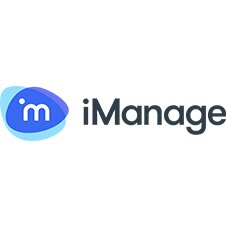Where the rubber meets the road: A practical AI approach for small law firms – find out more with iManage
According to the Brookings Institute, artificial intelligence, or AI, as a general-purpose technology, stands to impact a wide array of industries, prompting investments in new skills, transforming business processes, and altering the nature of work.
Predictions of widespread impact
We expect millions of knowledge workers, ranging from doctors and lawyers to managers and salespeople to experience ground-breaking shifts in their productivity within a few years, if not sooner.
Machines of mind: The case for an AI-powered productivity boom, Brookings Institution
Productivity is a powerful predictor of prosperity and welfare over time. And while some may doubt digital technology’s influence on economic growth, others point to the 1990s when personal computers and email transformed business and work life as people had known it.
We can’t prevent change, but we can prepare for it. Your firm’s success hinges on its readiness to adapt quickly with all the means in your control.
What is AI’s relevance to boutique law firms?
In an Above the Law survey commissioned by iManage, more than three-quarters of small law firms rated the ability to leverage artificial intelligence (AI) either very significant (45%) or of moderate significance (33%) as the top technical priority to position their firm for long-term success.
But, while firms are excited about AI tools, they do not yet entirely trust them. Seasoned lawyers may question new approaches, and conventional wisdom tells us that greater benefits come with greater risks. Respondents from small firms ranked hallucinations, protecting client data, and understanding AI benefits as top concerns related to AI adoption, and ethics and data cleansing ranked high as well.
Law firms should take a long view of AI as an investment in creating intellectual capital. The adoption of new technologies often hinges on client demand and proven value. You can begin by adopting the new technology where the stakes are comparatively low. Focus use cases on practical improvements, such as creating savings in non-billable activities. Then proceed with higher-stakes applications after you have established learnings or capabilities that increase your confidence in safe and effective use and you can be sure of offering top-billing attorneys a clear payoff.
You can also take a measured approach to spending on AI, weighing cost against functionality.
Clarifying what AI can and cannot do
Let’s not get ahead of ourselves, though. AI supports a multitude of emerging technologies — some of which can absolutely serve a law firm’s needs. But they must be carefully assessed and evaluated; so you want to focus on the jobs to be done and manage expectations around AI capabilities.
The first step is to identify the problem you want to solve and articulate the issue in problem language. Try to find a match in the descriptions below, which we’ve borrowed from an essay we published earlier this year:
Extract — pull specific information from the text of a document (like a contract).
Compare — identify similarities and differences between specific passages and works within or across documents.
Organize — group similar or related texts or documents together.
Label — a way to ID specific text or a document based on classification types or predefined taxonomy.
Find — query collected texts to find relevant information, such as cases.
Draft — generate text, such as a contract clause.
You are far more likely to be successful in achieving the business outcomes you desire once you’ve established that AI is an appropriate avenue to solving your problem.
Defining AI’s usefulness in a legal context
What are we talking about when we say AI in the context of legal work?
The technology we call AI can be defined as the capability of machines such as computers, computer-controlled or robotic devices, or algorithms to copy or reproduce behaviors normally attributed to humans.
And, as anyone reading this is well aware, AI has massive potential to reduce the drudgery that legal professionals are routinely subjected to in the form of mundane, time-consuming, but still quite necessary tasks.
AI can help law firms and other legal-focused businesses improve their ability to perform high-quality work faster and more efficiently for clients while increasing the time employees dedicate to more satisfying, higher-value work.
Some of the monotonous jobs that AI-based software, platforms, and tools may be able to help with include trial preparation, evidence gathering, legal research, clause drafting, and case assessments.
Despite its potential for good, and undeniable interest in the possibilities, however, the overall response to AI has been measured — in particular to generative AI, which is likely the most familiar application of AI among professionals working in small or boutique law firms.
Assessing needs and readiness
Information architecture with the right underpinning technology is critical to the safe, effective application of AI in your firm. And the first step in organizing, managing, and securing your critical content is a solid, high-performing document management system (DMS). This is foundational for firms seeking to implement cutting-edge technologies because relevant, accurate, and accessible data is key to generating successful results using advanced tools like generative AI.
But again, the Above the Law survey revealed a gap between what law firms say is important to them and what they’ve implemented.
For example, almost 90 percent of respondents said having the latest technology was significant, and more than half chose “very significant.” But in terms of their current capability, only 19 percent were strongly in agreement that their firm had the latest tech in place.
For those firms who aspire to take advantage of the myriad benefits of advanced technologies like AI, this is an area where improvement is not only desirable; it is accessible.
AI aspirations soar above AI realities
Small firm aspirations do not always align with reality. Outdated mindsets often stand in your way. Only 10% of respondents in the Above the Law survey felt strongly that their firms were currently taking advantage of AI, while 55 percent said they were not. A slightly higher number, 14 percent, strongly agreed that their firm was trialing an AI solution, while 56 percent were not.
So, while more than eight in 10 lawyers surveyed by LexisNexis recognized AI’s potential to enhance efficiency, successfully embracing a culture of change requires firmwide alignment and commitment. This is where an expert vendor can be transformative, guiding the setup and ongoing success of a cutting-edge system that positions the firm for better long-term business outcomes. A trusted vendor can also help you work through some of the potential pitfalls.
Navigating the ethical implications of using AI
Even small firms need information governance policies to manage the flow of data, protect sensitive client information, and comply with legal and ethical standards. A centralized platform is a great foundation from which to manage, track, and secure client information.
A robust, Zero Trust security infrastructure helps ensure that only authorized users can access sensitive information, creating an impenetrable fortress against cyberthreats and building client trust and confidence. Configurable security policies make it easy to manage security and keep diverse types of client content protected without IT involvement.
Other challenges and considerations
Failing to stay up to date with technology trends can have consequences beyond those we’ve already discussed or even the prevailing sentiment that those who fall behind, stay behind.
At iManage, we’ve been amplifying for many years, and particularly since the proliferation of remote working, the need to ensure all work-related materials are contained in a secure, central repository with advanced protections, wherever they are accessed from and on whatever device. Well, AI has introduced a new twist on that theme for businesses that deal with sensitive or confidential information.
According to the 2024 Work Trend Index Annual Report from Microsoft and LinkedIn, 78 percent of AI users are bringing their own AI tools to work (BYOAI) and it’s even more common at small and medium-sized companies (80%).
Notably, the report found that 52 percent of people who use AI at work may not admit to using it for their most important tasks — possibly out of fear that AI is going to replace them. But this artifice puts client data at risk in an industry where cybersecurity and data privacy are, more than ever, top of mind.
Your boutique firm can avoid this potentially disastrous situation by advancing an AI strategy that provides equivalent benefits to ensure users can safely take advantage of AI — with guardrails in place to keep data secure.
Final thoughts
A concerted effort with commitment from all levels is necessary to modernize operations and integrate AI, analytics, and automation tools seamlessly into your workflows, yielding tangible benefits. A practical approach can enable your firm to reap the rewards of this transformative shift in how work gets done. A future of innovation and opportunity awaits.
With a long-standing reputation in the legal tech industry, iManage is widely known for its robust document management and search solutions. AI applications built natively into the iManage knowledge work platform automate content workflows and reduce manual tasks so legal professionals can do their best work. Learn how iManage helps small firms level the playing field with its cloud-native and AI-powered solutions.



